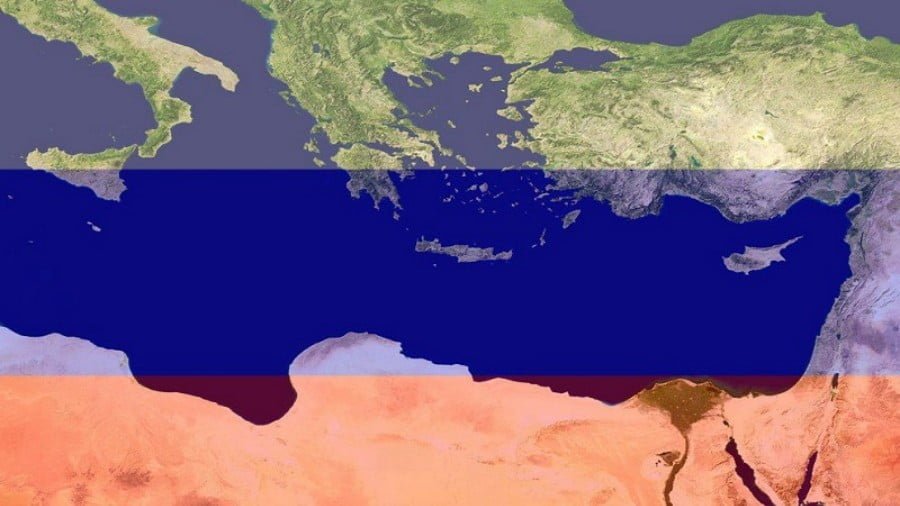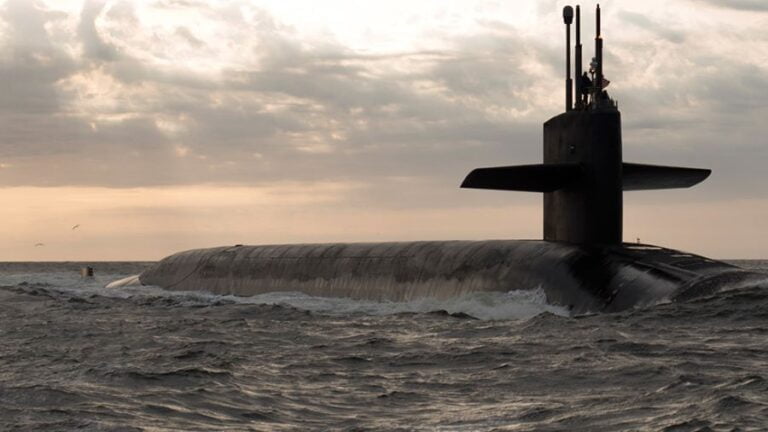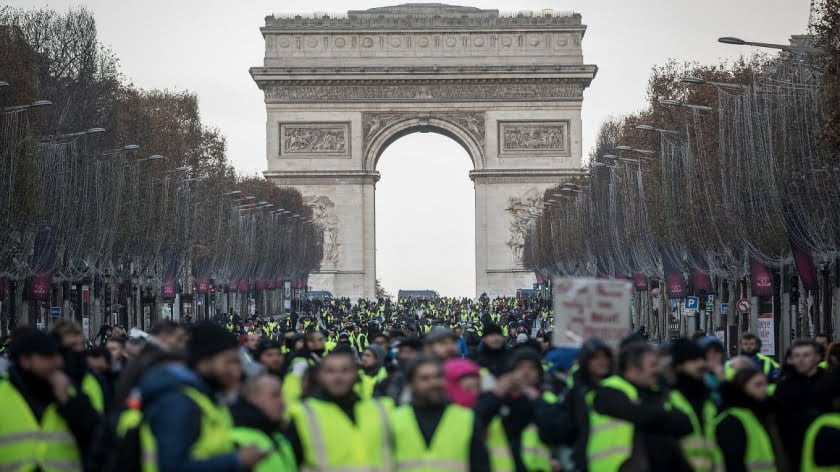Russian Influence in the Mediterranean Is Multipolar, Not Malign
US Secretary of State Pompeo’s misportrayal of Russian influence in the Mediterranean as malign is likely due to the fading unipolar hegemon’s fear of the growing multipolar impact that the Eurasian Great Power is having on regional affairs, and it also very conspicuously ignores the de-facto Russian-”Israeli” alliance which voices on both sides of the partisan aisle as well as the vast majority of the Alt-Media Community feel very uncomfortable discussing for vastly different reasons.
Malicious Accusations
America’s top diplomat claimed earlier this week that “Russia continues to threaten Mediterranean stability using a variety of techniques to spread disinformation, undermine national sovereignty, and sow chaos, conflict, and division within countries throughout the [Mediterranean].” Pompeo purported that the Eurasian Great Power’s enormous military support of the Syrian government in its anti-terrorist campaign was proof of this, as well as a diplomatic scandal in Greece a few years back, its diaspora’s financial connections with the region, and its reported mercenary-led intervention in Libya. In reality, however, Russia’s regional role is far from malign but actually represents the embodiment of irreversible multipolar trends, an observation which understandably upsets the fading unipolar hegemon. Moreover, Pompeo also conspicuously ignores the de-facto Russian-”Israeli” alliance which voices on both sides of the partisan aisle as well as the vast majority of the Alt-Media Community feel very uncomfortable discussing for vastly different reasons.
Setting The Record Straight
To briefly address each of his points, Russia’s anti-terrorist military intervention played a decisive role in defeating ISIS. In addition, the author earlier also drew attention two years ago to how “Russia’s Reshaping Syria’s ‘Deep State’ In Its Own Image”, specifically through one of its top think tank’s “recommendations” for security sector “reform” aimed at countering Iranian influence on that country’s armed forces, something which is being pursued independently of US interests but nevertheless dovetails with them. Secondly, the diplomatic scandal that Pompeo touched upon relates to Greece’s expulsion of Russian diplomats for supposedly trying to subvert the so-called “Prespes Agreement”that eventually made Macedonia the world’s first “politically correct” police state exactly as the author predicted, which they never attempted to do. Regarding its diaspora’s financial influence, there’s nothing wrong with this, and it in many ways compares to Western expats’ own. As for Libya, Russia is working closely with Turkey to stabilize the situation despite disagreements.
The Impact Of Multipolarity
The previously unforeseen and subsequently rapid expansion of Russian influence in the Mediterranean — greatly advanced by the newfound Russian-Turkish Strategic Partnership that rose in the wake of their regrettable November 2015 plane incident in Syria — has had the effect of facilitating the spread of multipolarity throughout the region. What’s meant by this is that the US’ unipolar hegemonic designs are being threatened by Russia’s emergence as a credible alternative to it in many respects, thus finally giving regional players someone else to rely upon instead of having to retain their former dependence on America for whatever their needs may be or oppose its aggression almost entirely alone (with Iran’s support to the Resistance being the notable exception). Where Russia doesn’t differ from the US, however, is with its de-facto alliance with “Israel”, which the author elaborated upon at length in his extensively researched piece for Global Research in September 2019 titled “Russia’s Middle East Strategy: ‘Balance’ vs. ‘Betrayal’?”.
Pompeo’s “Politically Correct” Omission
Although some differences still remain between these two strategic partners, notably in terms of the limits to their cooperation in Syria, they’re still largely on the same page in many respects as the cited Global Research analysis explains. This, however, is conspicuously ignored by Pompeo, his partisan opponents, and most of the Alt-Media Community, albeit for their own reasons. Neither America’s top diplomat nor his domestic enemies dare to draw attention to this after spending the past four years defaming Russia since they’re afraid that it would thus make their “Israeli” ally look bad by association. They’re also probably a bit jealous of how close President Putin and Netanyahu have become over the years, the resultant relationship of which the author describes with the portmanteau of “Putinyahu’s Rusrael”. “Israel”, long thought by some to be under the US’ influence, is actually impressively independent as far as cultivating its own strategic relations with Russia goes. These observations make Americans uncomfortable, hence why they choose not to publicly discuss them.
The Alt-Media Community’s Self-Censorship
As for the Alt-Media Community, most are zealously opposed to Zionism, so much so that their beliefs are practically dogmatic at this point. Every member has the right to hold whichever sentiments they want, but they’re unable to reconcile their anti-Zionism and Russophilia like the author explained in his Global Research analysis. This leads to what he described as the “freakish fusion” between the two whereby those who espouse these views cannot accept that President Putin is a proud philo-Semite who’s overseen his country’s de-facto alliance with “Israel”, something that he passionately defended back in September 2019 while speaking before the self-described “preeminent worldwide fundraising organization for Israel” and “fundraising arm of the Jewish People and the Zionist Movement”, the Keren Heyesod Foundation. Instead of supporting Russia on some issues while disagreeing with it on others such as this one for instance, they feel that no such balanced approach is possible, so they simply ignore the Russian-”Israeli” alliance because it’s “politically inconvenient”.
The Jewel In Russia’s Geopolitical Crown
Truth be told, however, this game-changing strategic partnership is actually the jewel in Russia’s geopolitical crown, and no serious discussion of its Mediterranean strategy is possible without focusing the majority of one’s analytical attention on it. However one personally feels about Russia’s extremely close ties with “Israel”, the fact of the matter is Moscow seeks to replace Washington as Tel Aviv’s top regional security partner. There are of course practical limits to how far Russia is willing to go in this regard, but there’s no denying that it successfully pushed Iranian forces back from the occupied Golan Heights in 2018 as publicly acknowledged by Russia’s own Defense Ministry and even passively facilitated “Israel’s” hundreds of strikes against the IRGC and Hezbollah in the Arab Republic by never interfering with them despite receiving advanced notice. These developments — and especially Russia not allowing Syria to use the S-300s to shoot down “Israeli” jets as the author analyzed at length here — helped “Israel’s” security interests much more than the US has in recent years.
Concluding Thoughts
It’s not the author’s intent to argue in support of or against Russia’s de-facto alliance with “Israel” since he respects the reader’s right to arrive at their own conclusions about this sensitive issue, but simply to remind everyone that this strategic partnerships exists and thus raise the “uncomfortable question” of why Pompeo, his domestic opponents, and the Alt-Media Community all fail to mention it when discussing the Eurasian Great Power’s growing influence in the Mediterranean. As it was provocatively described in the article, this is actually the jewel in Russia’s geopolitical crown, and it can also be said that “Israel” regards its privileged relationship with Russia as being a jewel in its own such crown as well. After all, everything that Russia has done for “Israel’s” regional security interests in recent years (particularly with respect to Syria) can’t help but be immensely appreciated by Tel Aviv, especially since it’s much more than its traditional American ally has done for it during the same time. It’s therefore impossible to discuss Mediterranean geopolitics without acknowleding that the de-facto Russian-”Israeli” alliance is one of its most prominent features.







